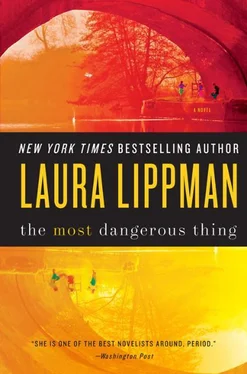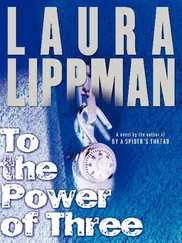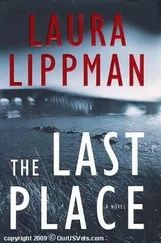“He probably thought you had no interest. You were a teenager by then. Trust me, teenage girls have very little use for their fathers. Their fathers’ wallets, but not their fathers.”
“My dad and I got along well. Then and now. Yet we can’t talk about this.”
“Gwen, let it go. This isn’t about you.”
Gwen glances around the table, in search of something. She grabs a napkin, rummages in her purse, finds a pen. A much-chewed pen, Tim observes, the one thing about Gwen that is not put together, polished. She draws a star in the way that grade-schoolers are taught, with five slashing lines.
“This was us. The five points of a star,” she says. “Remember? Mickey said we were like a starfish.”
“A starfish regenerates its limbs. My brother isn’t coming back. My brother, Gwen.” He is trying to underline to her that he gets to decide this. He and Sean, if it comes to that, but not Gwen.
“Now look at the center. When you draw a star this way, it forms a pentagon at the center. That was Chicken George. Not just him, but the woods, and our adventures there. When he molested Go-Go, when he died-we were all cut off from each other. I suddenly couldn’t stand to be around Sean. I didn’t know why, I just know it was so. And I think he was relieved that I didn’t want to go with him anymore. Mickey went to a new school, and we didn’t see her anymore, but we had always gone to different schools, so that wasn’t it. You think it’s dangerous to look closer at this. I think it’s dangerous to look away.”
Their appointment had been for twelve forty-five, late for lunch in this part of town, and the diner has emptied, entered the afternoon lull. He sees the homicide detectives up at the cashier, paying their separate checks, shaking toothpicks free from the dispenser. A lawyer he knows, a formidable defense attorney, is finishing her coffee at the counter, reading the paper. She catches his gaze, arches an eyebrow at him. That old bag doesn’t miss a trick.
“I’ve got to get back to work.” In his mind, he is running through the chain of events if this were ever to become public. What if Gwen decides to write about this, for God’s sake? Writers have so few boundaries. Didn’t she publish an article about her own daughter’s adoption a few years back, complete with details no one needed to know about her fertility problems? Maybe he should tell his boss, confidentially and preemptively. Hell, forget his boss, how does he tell Arlene, someone from whom he has no other secrets? When I was a kid … But even now, even with Go-Go dead, it feels like a betrayal. They are not supposed to talk about this. Even with his mother, in the weeks since Go-Go’s death, they have strenuously avoided the topic. “You don’t think-” his mother said the weekend after the funeral, when everyone else’s lives were going back to normal and they were left alone in their new normal, this territory of grief, whose boundaries lie far beyond their range of vision, making it impossible to know how long they will be here, if they will ever leave. “No,” he said. He didn’t think it was a suicide. He didn’t think it had anything to do with what happened when Go-Go was nine because why now? It made no sense. He got drunk. He cracked up his car. End of story.
His conversation with Gwen has nowhere to go, but they make a stab at it. They talk idly about their children, schools, whether they fit the definition of helicopter parents, although they’re both pretty sure they don’t. Gwen wraps a strand of hair around her finger, a habit he remembers from childhood. She’s going to do whatever she wants. She always has. A moment ago, when she mentioned breaking up with Sean, Tim almost blurted out what he has always known about his brother: Sean was relieved that Gwen broke up with him because he was terrified of her, of sex. Oh, Sean wanted to have sex. But not with Gwen, because she was too scary-good at getting what she wanted, and what if she wanted to be his only girl, ever? As a newly pretty girl, Gwen was rough with her power, as reckless in her own way as Go-Go. She was like a child discovering a loaded gun in Daddy’s nightstand. Even if nothing happens, the sight is terror enough, the weapon juggling in those small hands, so many possible outcomes, almost all bad.
As a woman, she is smoother, but still not as smooth as she thinks she is. She will do whatever she wants, with no regard for anyone’s feelings. She always has.
R ita can tell it’s going to be a bad day even before she opens her eyes. She feels it in her bones. Well, technically, she feels it in her joints, which are not the same thing as bones, as she now knows, thanks to all those smarty-pants doctors, men younger than her, who could be the very residents who used to undertip her at Connolly’s. In spite of herself, Rita has learned a lot about the body, her body. She could probably pass whatever test people have to take for medical school from all the tedious blah, blah, blah about her joints, tendons, lining, inflammation. Her situation boils down to this: She hurts. A lot.
Besides, Rita has no desire to go to medical school, so having all this information at her fingertips-her swollen, clumsy, useless fingertips-is like being asked to familiarize yourself with the life story of a person who ran you down with a car. What’s the point of understanding a disease when the disease can’t be cured? Rita has to settle for managing her rheumatoid arthritis. Her doctor keeps trying various drugs in new combinations. A little more of this, a little less of this. Wait, this is interacting badly with that. He reminds her of Mickey as a child, busily arranging spindly wildflowers in a jar, the stems wilting, the blossoms drooping from all her handling. Meanwhile, Rita can’t find a sleep drug that works. Even with Ambien, her sleep is thin, barely sleep at all.
She bets her doctor sleeps beautifully. Probably has one of those special beds-the one designed for astronauts, or the one with the individual controls. There’s not a bed in the world that could help Rita sleep better. Rita, who could sleep sitting up, in a car, even on her feet once upon a time. She tried a water bed after she was diagnosed, thinking the heat would help, but it was a bust. She gave it to Joey, who gave it to Mickey, which pissed her off a little. “If I want your sister to have something, I’ll give it to her,” she told Joey. “But you never want her to have anything,” he pointed out. Not exactly true. It’s just that anything Rita has to give, she always offers Joey first.
And why shouldn’t she? Mickey-Rita’s not about to use that stupid name she’s conferred on herself, kids don’t get to pick their own names, that’s a parent’s right-doesn’t do anything for her. Never visits, even though she almost certainly gets to fly for free, deadheading or whatever they call it. Won’t send money when she knows Rita is perpetually short. Says she doesn’t have any, but Rita doubts it. That girl is a squirrel, putting away anything she can. As a child, Mickey had drawers full of things she had found, stupid, nasty things. Nests, rocks, birds’ eggs. She yowled when Rita threw them out, but you can’t have things like that in the dresser drawers. Dirt attracts dirt.
Rita brings her legs over the side of the bed. Stiff, but not awful. Then again, her legs never bother her that much. The pain lives in her upper body, in her hands, wrists, elbows, shoulders. She makes her way to the kitchen, bumping the corner of the old-fashioned bureau. The slight movement almost knocks off the scarf she has draped over the mirror. Rita has covered up all but one of the mirrors in the house, a small makeup mirror in the bathroom, the one she uses when brushing her hair and applying lipstick. She’s OK with seeing herself, but she doesn’t like to be surprised by her image, doesn’t want that moon face sneaking up on her. She has to be prepared. It’s a tough thing, trying to get rid of one’s image. Her bungalow, it turns out, is full of reflective surfaces-the windows at night, the microwave door, even the faucet. The world keeps throwing her face in her face.
Читать дальше
Конец ознакомительного отрывка
Купить книгу












